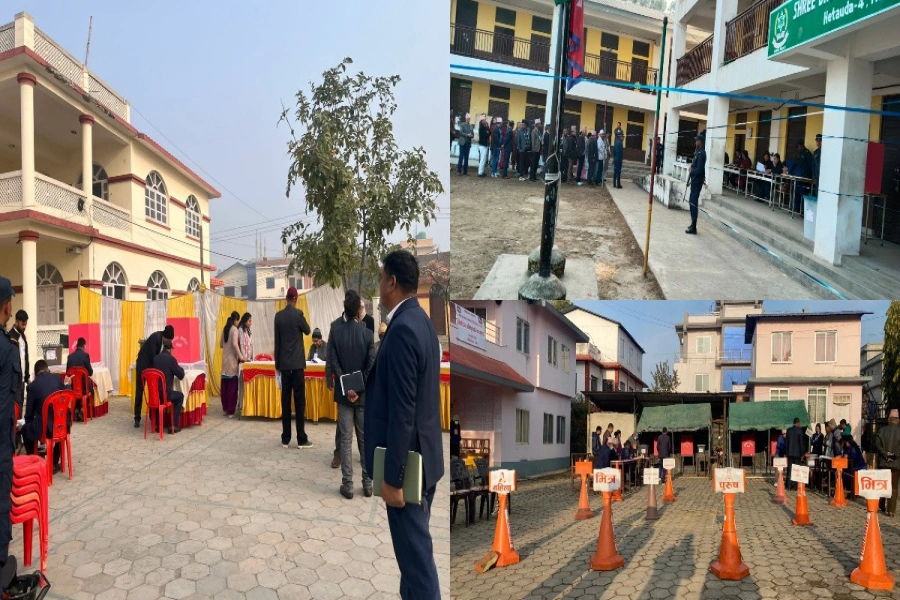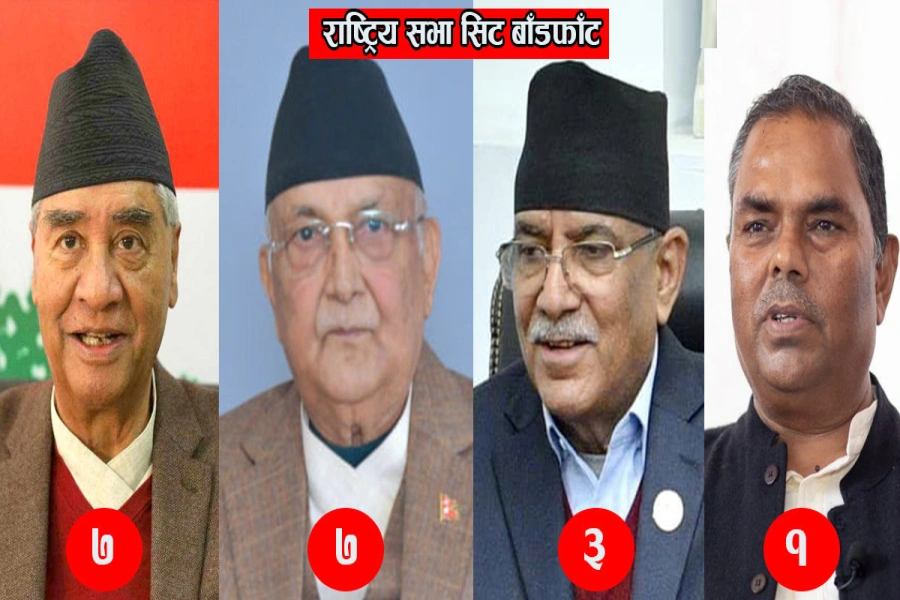Our constitution has envisioned bicameral legislature with the House of Representatives as the lower house and the National Assembly as the upper house. Upper House, among other things, is also meant for ensuring the balanced representation. According to the constitution, in the 59-member National Assembly, 56 members are elected by ensuring representation of at least three women, one Dalit and one from persons with disabilities or minorities, from each State by an electoral college composed of members of provincial assembly and chairpersons and vice-chairpersons of the local bodies. Just in case some experts are needed there is a provision for the president to appoint them in the remaining three members on the recommendation of the government. The constitution does not state that these three members have to be ‘experts’ but our constitutional history has such tradition. Article 46 of Constitution of 1990, for example, had the provision of the king nominating 10 members from among “persons of high reputation who have rendered prominent service in various fields of national life.” The Indian constitution still has this provision whereby 12 members of Rajya Sabha are nominated by the president from among those who have contributed in arts, literature, sciences, and social services. So in India’s Rajya Sabha, there are journalists, litterateurs and even sports persons.
Modi Magic on the Wane

By design or default, Nepali political parties have tended to exclude experts in the upper house under presidential appointment. They seem to have taken advantage of lack of clear qualifications in the constitution for who can be appointed through president and have appointed even those leaders who have lost the elections, in the quotas which are meant for individuals who have distinguished themselves in various spheres. Parties in Nepal have often reserved such quotas to appoint their members. Take the recent exercise of ruling Nepal Communist Party (NCP) to nominate party Vice-chairman Bamdev Gautam as an upper house member under the presidential appointment quota. Earlier in 2008, then Maoist party appointed Madhav Nepal as a Constituent Assembly member under the presidential quota. Nepal had just lost the CA election from two different constituencies. As a matter of fact, political parties do not hesitate to ask few experts who have to resign to vacate the position so that they can bring in party leaders in the vacant posts.
NCP can correct this tradition by recommending economists, constitutional experts and political scientists in such quotas. It does not need to go for party leaders because they have already found representation through direct vote, proportional representation or national assembly elections. With experts of various domains in the upper house, we can have sound debate and discussion on policy matters. They can point out merits and flaws of various bills, for example, provide examples from other countries and forward recommendations on contentious issues. This will also minimize the chances of the government bringing in flawed policies. In other words, with experts in the parliament political parties themselves stand to benefit. Ruling NCP needs to give a serious thought to this matter.






































